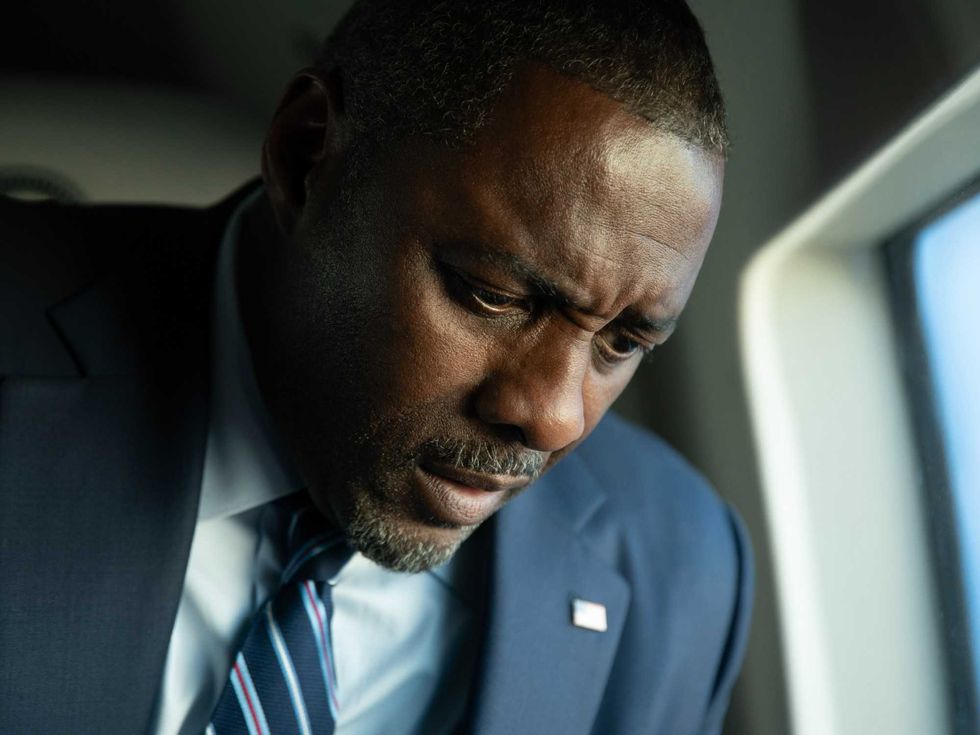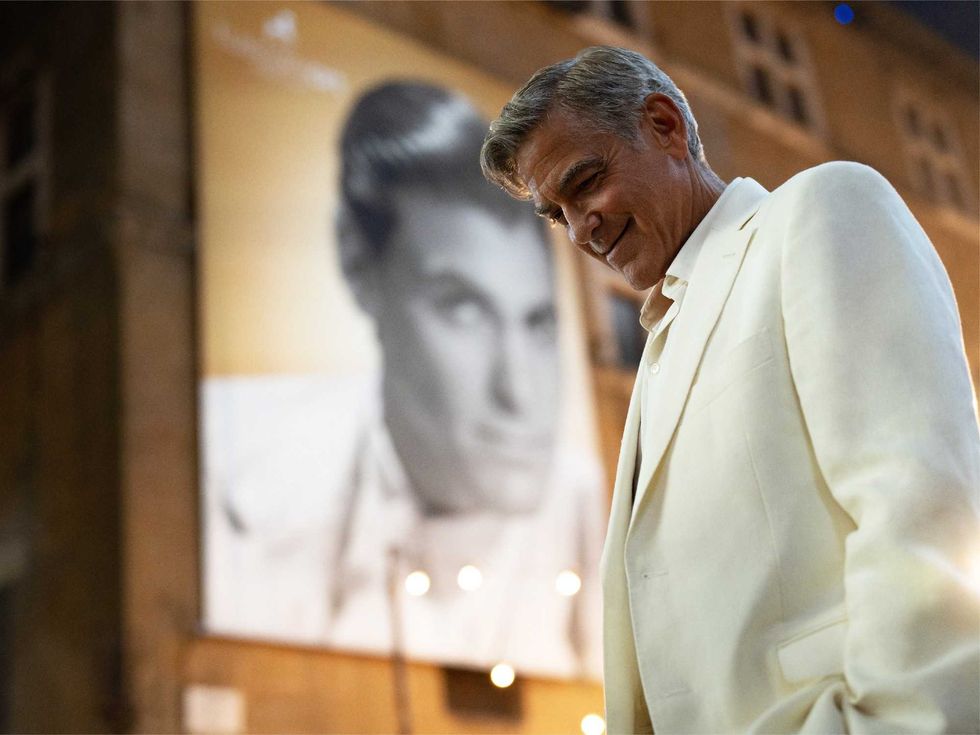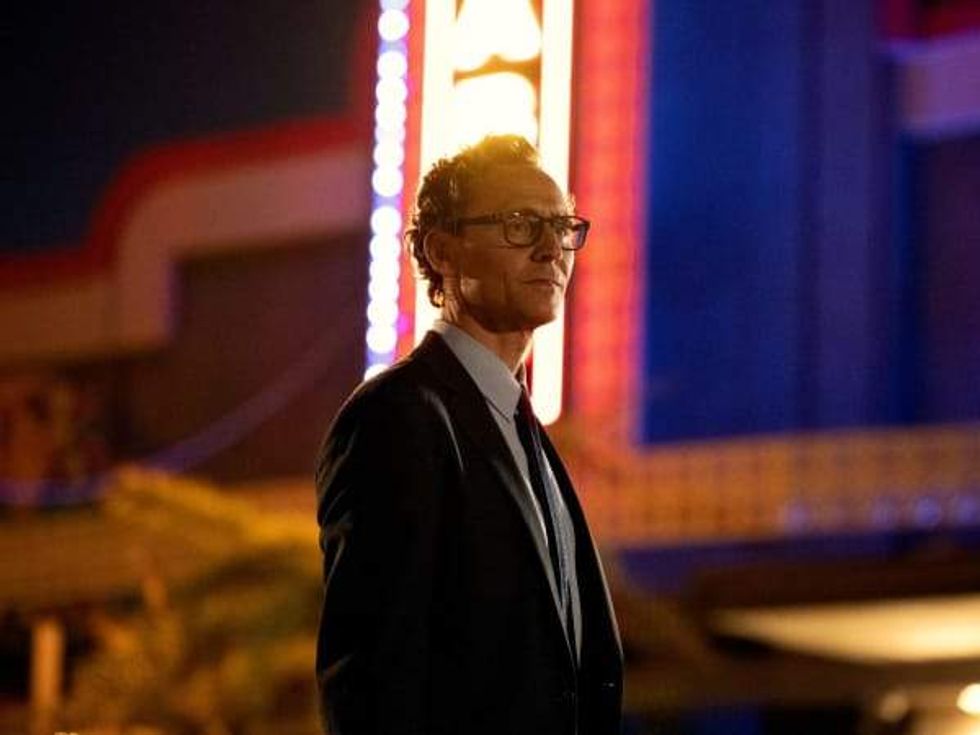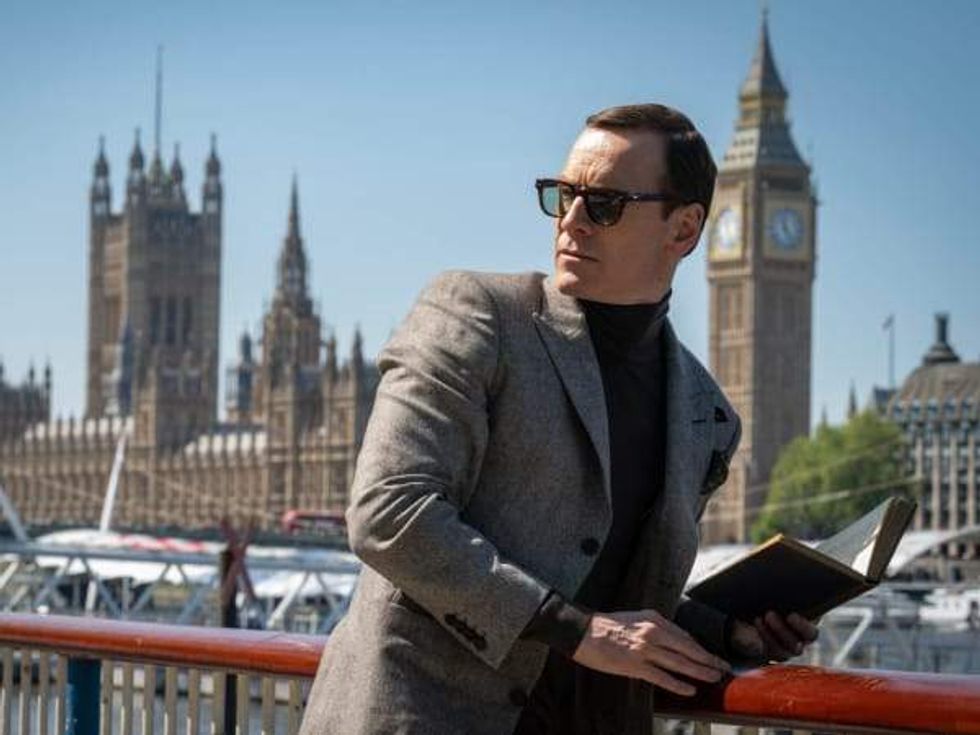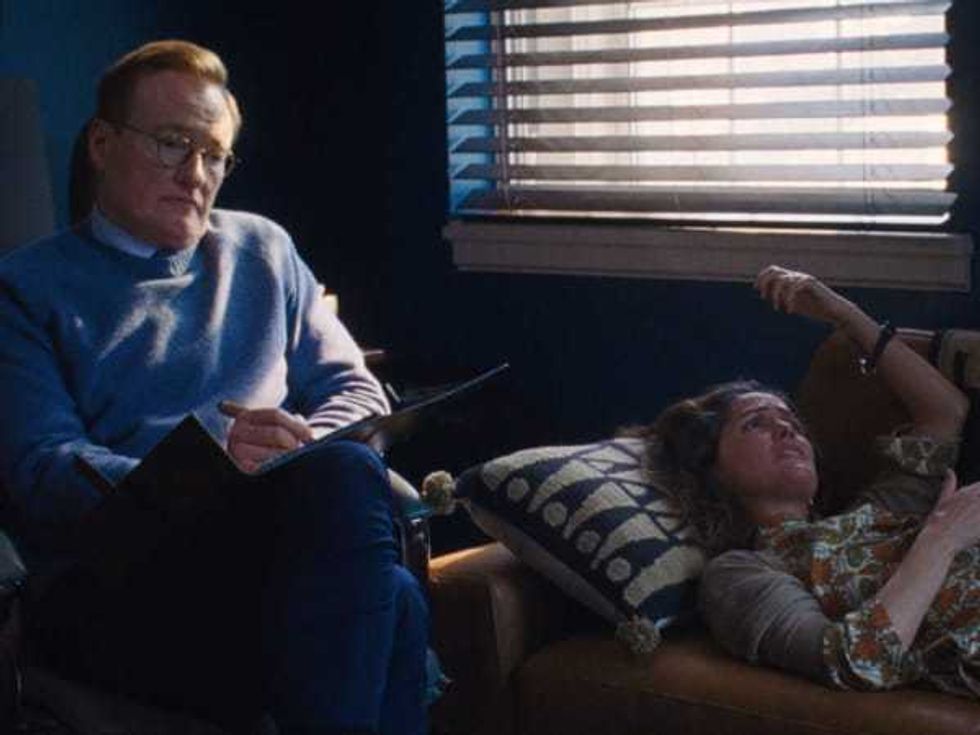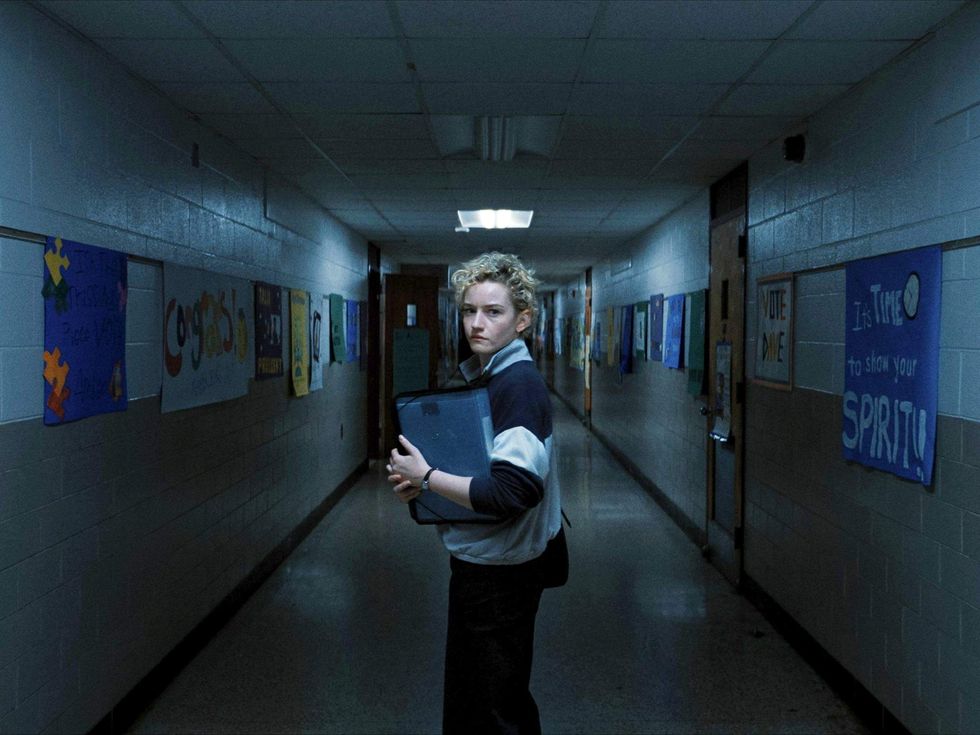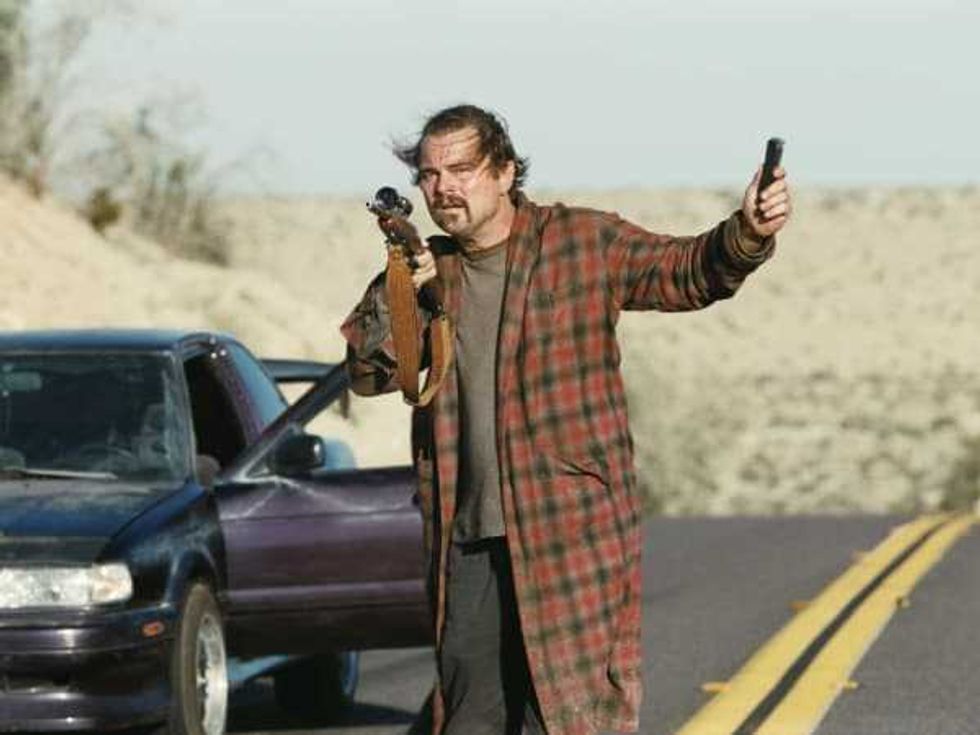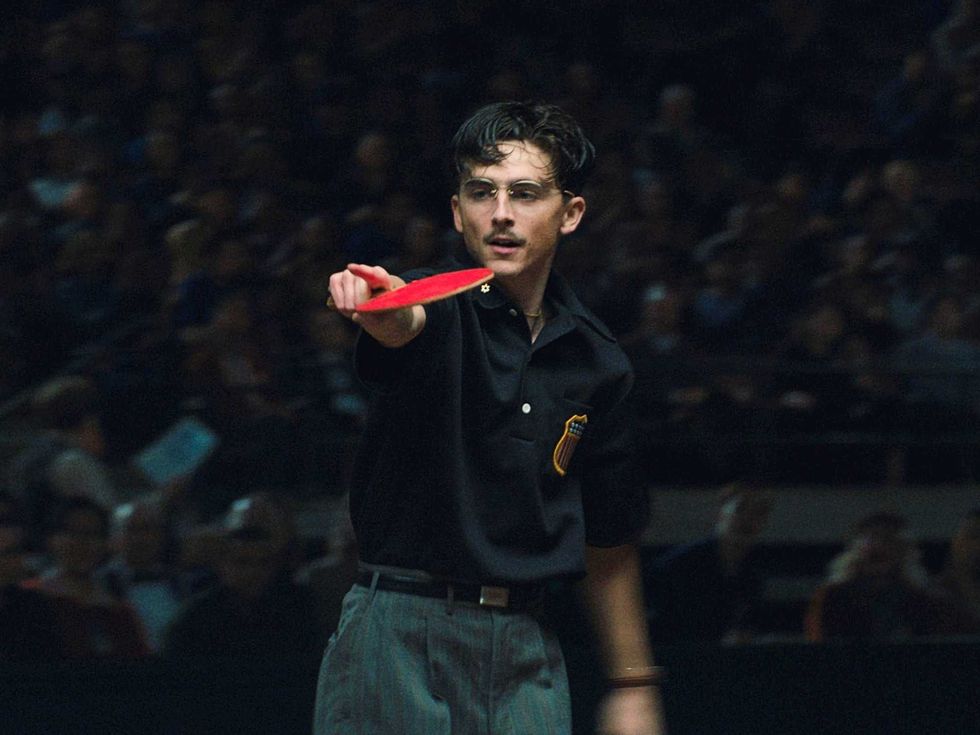 Former Olympic gymnasts make up a sizable part of the Cirque du Soleil team.Photo by Ed Schipul
Former Olympic gymnasts make up a sizable part of the Cirque du Soleil team.Photo by Ed Schipul Daniel Lamarre, president and CEO of Cirque du Soleil
Daniel Lamarre, president and CEO of Cirque du Soleil Performers rehearse "Ovo," which is showing in Houston through Sunday.
Performers rehearse "Ovo," which is showing in Houston through Sunday. A Cirque du Soleil show centered around the music of Michael Jackson opens inMontreal in October and will be in Houston in February 2012
A Cirque du Soleil show centered around the music of Michael Jackson opens inMontreal in October and will be in Houston in February 2012 The company now has 19 shows around the world.Photo by Ed Schipul
The company now has 19 shows around the world.Photo by Ed Schipul
About a half hour before a performance of Cirque du Soleli's Ovo is about to begin at Sam Houston Race Park, the atmosphere in the dining trailer is unusually laid-back. A couple of performers in full make-up and track suits are listening to their iPods and watching a soccer game on a flat screen TV while others are sitting at a small bank of computers browsing websites in Russian.
And at one table, a man in a dark jacket and burgundy patterned scarf is talking intently to a performer before strolling over to say hello.
"How do you like my scarf?" Daniel Lemarre says proudly, noting it's a gift he just received from a Chinese acrobat in the show.
With 19 shows, including seven in Las Vegas, one in Orlando, and touring productions around the world, Cirque du Soleil is an entertainment juggernaut. But president and CEO Lemarre believes it should still be run like a family operation.
Every year he visits every show, conveniently leaving snowy Montreal in the winter months for sojourns to sunny locations where Cirque is in full swing. In Houston, on this very day, he has made a two-hour Cirque update to the more than 150 employees in Ovo and then individually meets with anyone who wants a few moments of his time.
"In a selfish way, it's a way for me to understand what's going on on the tour," he says. "People know me, so they're candid. We have this kind of relationship that they're not afraid of raising questions."
When Lamarre joined Cirque a decade ago, it had only seven shows. But he sensed something special was about to happen.
"I thought this brand was ready to explode, because what Cirque was doing was so unique. Don't forget that with (shows about) the Beatles and Elvis and Michael Jackson, we have created a new category that is a hybrid between Broadway and a Cirque show. It's working beautifully for us."
Lamarre credits founder Guy Laliberté for Cirque's phenomenal success. "In the word 'show business,' show comes first. If you have a good show, you'll have a great business. If you don't have a good show, you won't have a business. Sadly our industry is led by business people who don't understand the artists. We are led by an artist who does not creatively compromise."
Lamarre and Laliberté's business relationship is a prime example of how you should always treat people well because you never know what might happen in the future. It began in 1987 after Lamarre's Montreal-based communications firm did some work for Laliberté, who was too broke to pay him. However, Lamarre thought that what Laliberté was trying to do with Cirque was amazing and wished him well.
Flash forward 12 years later: Lamarre was head of a TV network and Laliberté's Cirque was a runaway success. Lamarre wanted to secure television rights to Cirque, but Laliberté explained he had already entered into negotiations with another company. So the next day Lamarre was surprised to receive a copy of a note that Laliberté had sent to his head of marketing. It read, "This guy helped me out 12 years ago. He wants my TV rights. Do what you have to do."
"I was so touched that he rememberd and that he acted on it," Lamarre recalls.
In 2001, Laliberté called Lamarre out of the blue from London. "He said, 'Daniel, I had this amazing flash last night. You are going to join the circus.' I said, 'Whoa, cool down.' And here I am 10 years later."
To maintain the easygoing atmosphere as Cirque grows larger, Lamarre likens the organization to a big piece of steak. "We cannot be a piece of steak in one bite. The more the steak gets bigger, you have to slice it in smaller pieces," he says.
So Ovo is an organization within itself, like all Cirque shows. "I tell people in corporate to leave them alone," Lamarre says. "We have this big machine because we need the big machine to put up the big tent, to sell the tickets, to do the fiscal issues that we have in each country. And that's fine if you protect the creative cell. The only thing I want my people to worry about here is the show."
More "steak" will soon be on Cirque's plate : A new show, Zarkana, will open at Radio Music Hall in June for a four-month run and then move to Moscow's Kremlin Theater. A Hollywood-themed show, Iris, starts previews at the end of July and premieres Sept. 25 at the Kodak Theatre (home of the Academy Awards ceremony). Two Michael Jackson shows are in the works: An arena show that opens in Montreal Oct. 2 before going on tour, with a planned February 2012 stop in Houston, and a permanent show in Las Vegas.
"It's a busy summer. There's a lot of sweat going on in our studio in Montreal right now," Lamarre says. " I feel good about it because there are three different teams. Only Guy and I who are looking over everything. The other people are totally dedicated to that one show."
In recent years, the Cirque family has expanded to include an increasing number of former Olympic gymnasts, divers, and synchronized swimmers. Lamarre says that around 300 of the 1,500 Cirque performers have participated in an Olympics.
"I'm so proud of that," he said. "Unlike professional athletes that become multimillionaires, those poor athletes have nowhere to go after the Olympics."
Cirque has an agreement with the International Gymnastics Federation not to try to lure such athletes away before an Olympics. "We won't touch them but after the Olympics we want to make it known that this opportunity exists for them," Lamarre said. And many of the athletes can move up in the organization once their performance days are over.
Lamarre's travel schedule sounds grueling, but he finds it invigorating. "I sleep well on airplanes. I love hotel rooms. I love everything about travel," he says.
However, his home office is not always so thrilled with his travels. "People in Montreal are worried when I'm on the road because they know I will get crazy about thousands of new ideas of things we can do," he says with a broad chuckle.
Ovo continues at Sam Houston Race Park through Sunday.

